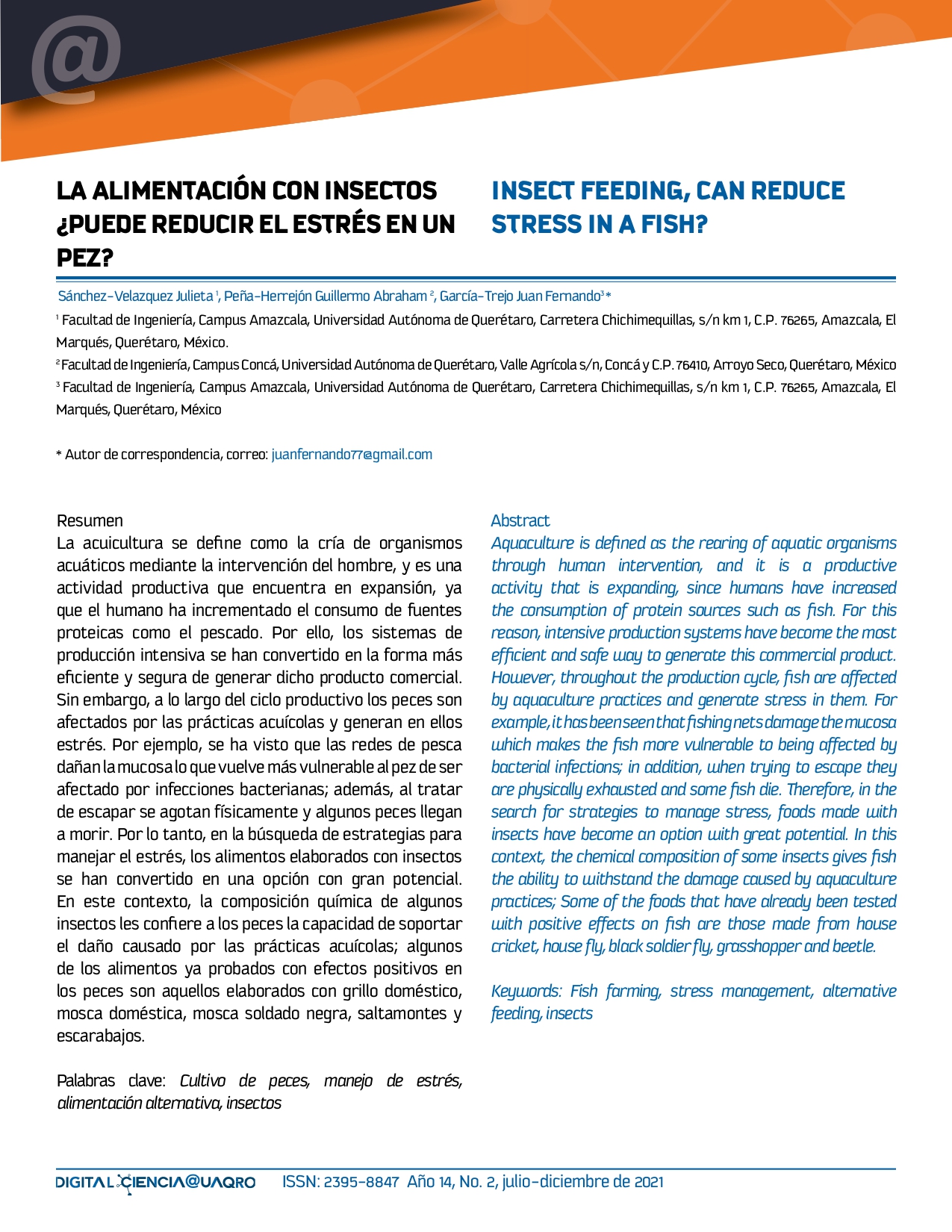Resumen
La acuicultura se define como la cría de organismos acuáticos mediante la intervención del hombre, y es una actividad productiva que encuentra en expansión, ya que el humano ha incrementado el consumo de fuentes proteicas como el pescado. Por ello, los sistemas de producción intensiva se han convertido en la forma más eficiente y segura de generar dicho producto comercial. Sin embargo, a lo largo del ciclo productivo los peces son afectados por las prácticas acuícolas y generan en ellos estrés. Por ejemplo, se ha visto que las redes de pesca dañan la mucosa lo que vuelve más vulnerable al pez de ser afectado por infecciones bacterianas; además, al tratar de escapar se agotan físicamente y algunos peces llegan a morir. Por lo tanto, en la búsqueda de estrategias para manejar el estrés, los alimentos elaborados con insectos se han convertido en una opción con gran potencial. En este contexto, la composición química de algunos insectos les confiere a los peces la capacidad de soportar el daño causado por las prácticas acuícolas; algunos de los alimentos ya probados con efectos positivos en los peces son aquellos elaborados con grillo doméstico, mosca doméstica, mosca soldado negra, saltamontes y escarabajos.

Esta obra está bajo una licencia internacional Creative Commons Atribución-NoComercial 4.0.
Derechos de autor 2021 Digital Ciencia@UAQRO

